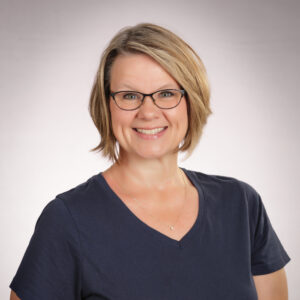Driving Possibilities: Toyota USA Foundation’s approach to supporting students, families, and communities
Editor’s Note: In this week’s blog post, NCFL Senior Director of Community Impact, Cherry Boyles, highlights Toyota USA Foundation and their work to support families across the country.
In today’s rapidly changing world, transitions from formal education into the workforce can be difficult. Whether it’s due to use of digital tools, communication between team members, or comprehension of complex technical texts, employees in today’s workforce can find themselves challenged to meet the daily expectations of their employers. This intersection between preparation and employment becomes even more difficult to navigate when the employee lacks basic literacy skills and struggles to read well.
Understanding the Impact
According to The Adult Literacy & Learning Impact Network’s (ALL IN) “Mobilizing Business & the Beltway,” low literacy rates among employees will result in an estimated $46B in lost revenue over the next year. This problem is not isolated to a few sectors. ALL IN reports that “1 in 3 employers say their average employee does not have the literacy skills needed to do their job well, and 2 in 5 say that low literacy is widespread in their company.”
When employees are unable to maintain pace and productivity, both the quality and quantity of their work suffers. Employers are then faced with decisions to maintain their bottom line by replacing staff and taking a loss on the personal and professional investments they’ve made in each individual employee. This situation can become a round-about with no clear exit if the employer doesn’t accept some role in developing the skill set of both their current employees and the pipeline of future employees.
While 99% of employers “recognize adult literacy is an issue,” only 42% offer literacy training to improve employee performance according to ALL IN’s report. Other approaches to improving performance may include use of visual aids to communicate directions, increased amounts of coaching time and supervision, or simplifying reading and writing requirements. All of which require the investment of time and personnel but serve only to address immediate concerns rather than the core problem.
Engineering Possibilities
According to the National Association of Manufacturing and Deloitte report, the US will have a shortage of up to 3.5 million STEM workers by 2025. When Toyota team members began to recognize this looming shortage, they analyzed the problem and developed an innovative solution.
According to Kim Sweazy, Communications Senior Analyst with Toyota, “Toyota USA Foundation created Driving Possibilities to address educational gaps and prepare students for future careers, particularly in STEM fields. The initiative focuses on providing innovative, hands-on STEM programming that aligns with high-growth industries, aiming to increase student achievement and excitement about future careers.” At the heart of Driving Possibilities is the local community, its schools, organizations, and families. Each of the fourteen planned Driving Possibilities sites throughout the country works to achieve a common set of goals that reduce the roadblocks to learning and potential for children. However, the work of Driving Possibilities ultimately focuses on the specific needs of the community and its population.
Community-based organizations, education institutions, and businesses join with Toyota USA Foundation to consider the needs of the community, including the barriers their families could face. Whether it be low adult literacy rates or food deserts, the Driving Possibilities teams design solutions that enable local children and families to achieve success.
Near Lexington and Georgetown, Kentucky, Kim Sweazy’s team has partnered with the National Center for Families Learning (NCFL) to facilitate each community’s codesigned approach. As a 35-year partner with Toyota, NCFL utilizes a series of community planning conversations to support partners as they prioritize strategies to increase the implementation of innovative hands-on STEM instruction while reducing barriers to language access and improving adult and family literacy.
By serving as the convener of these community, education, and industry teams, Toyota USA Foundation hopes to encourage others to join in the “possibilities.” As Sweazy acknowledges, “businesses and industries advance community learning by providing resources, creating partnerships, and offering expertise and mentorship. These efforts ensure students gain the relevant skills and practical experience that benefit both education and the workforce.”
When community members join to address the needs of children and families, they create new possibilities for transformation that becomes both systemic and sustainable. For ideas on how your community or organization can get started, I invite you to join NCFL, the Toyota USA Foundation, and many of the Driving Possibilities partners at the 2024 Families Learning Conference in Louisville, Kentucky on November 18-20, 2024. Sessions of particular interest include “A Conversation with Kentucky’s Driving Possibilities Team” on November 20 at 9:45 a.m. and Fayette County Public Schools’ “FACE Forward: Family Engagement in the Forefront” on November 18 at 3:30 p.m. A featured session on November 20 at 9:45 a.m. will tell the story of Kentucky’s Driving Possibilities program.
About the Author

As NCFL’s Senior Director for Community Impact, Cherry Boyles supports the implementation of family learning systems that are codesigned with local community members to improve educational outcomes and economic opportunities for all families.
Before joining NCFL in 2022, Cherry worked as an educator in Kentucky, serving as a classroom teacher, district instructional coach, chief academic officer, statewide literacy specialist, and statewide assistant director of curriculum development. During her years in education, Cherry participated on state and national panels that focused on standards implementation, adolescent literacy, and comprehensive assessment systems. She has served as chair for the National Assembly of State Coordinators for English Language Arts, presented for ASCELA, NAEP, and CCSSO, and is a graduate of the Learning Forward Academy. Cherry has a Bachelor of Arts from Transylvania University and a Master of Arts from the University of Kentucky.
When she is not working, Cherry volunteers with Natalie’s Sisters in her hometown of Lexington, Kentucky, and with 127 Worldwide. She enjoys cheering on the Wildcats, spending time with family, reading mysteries, and gardening.